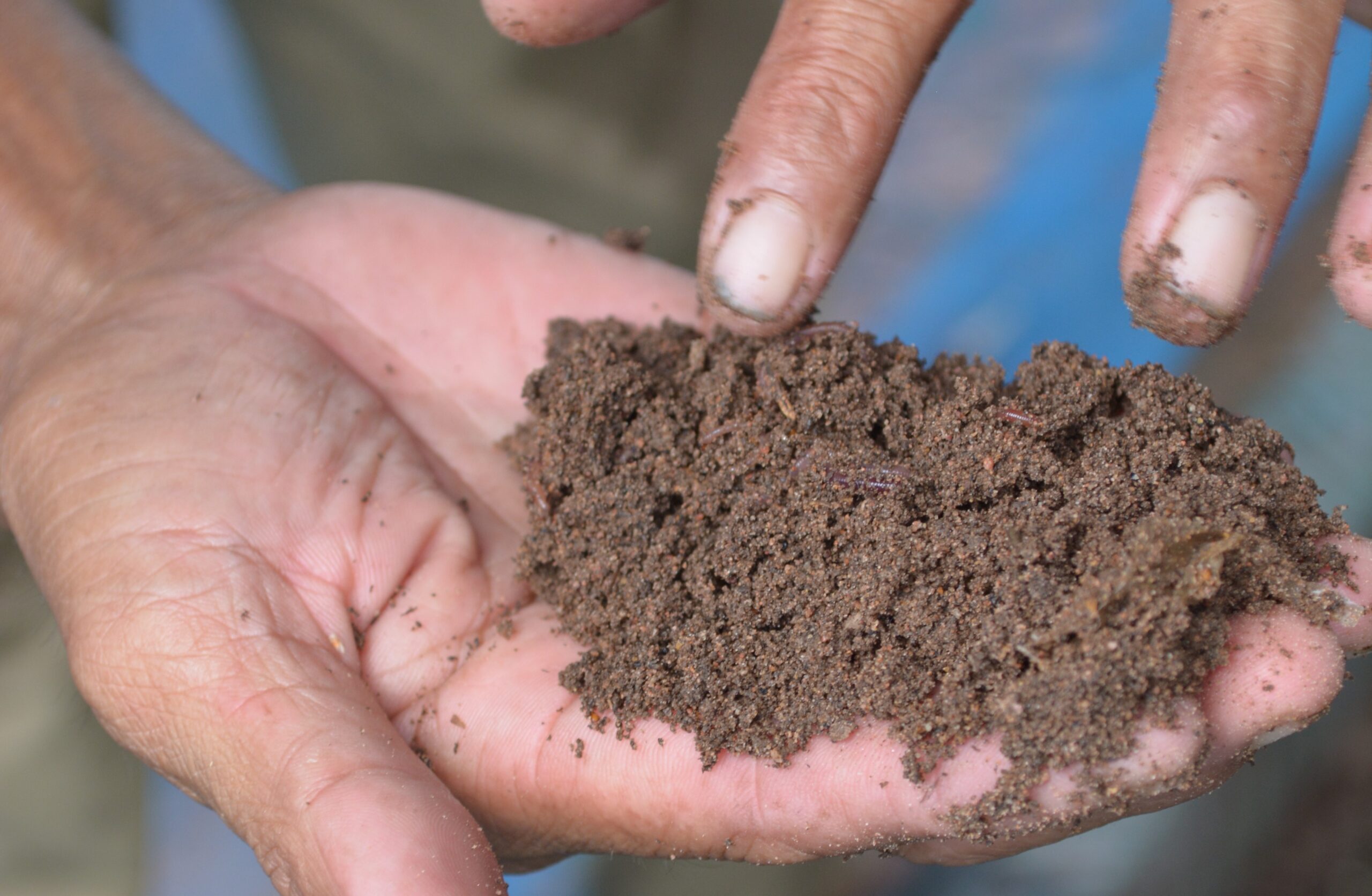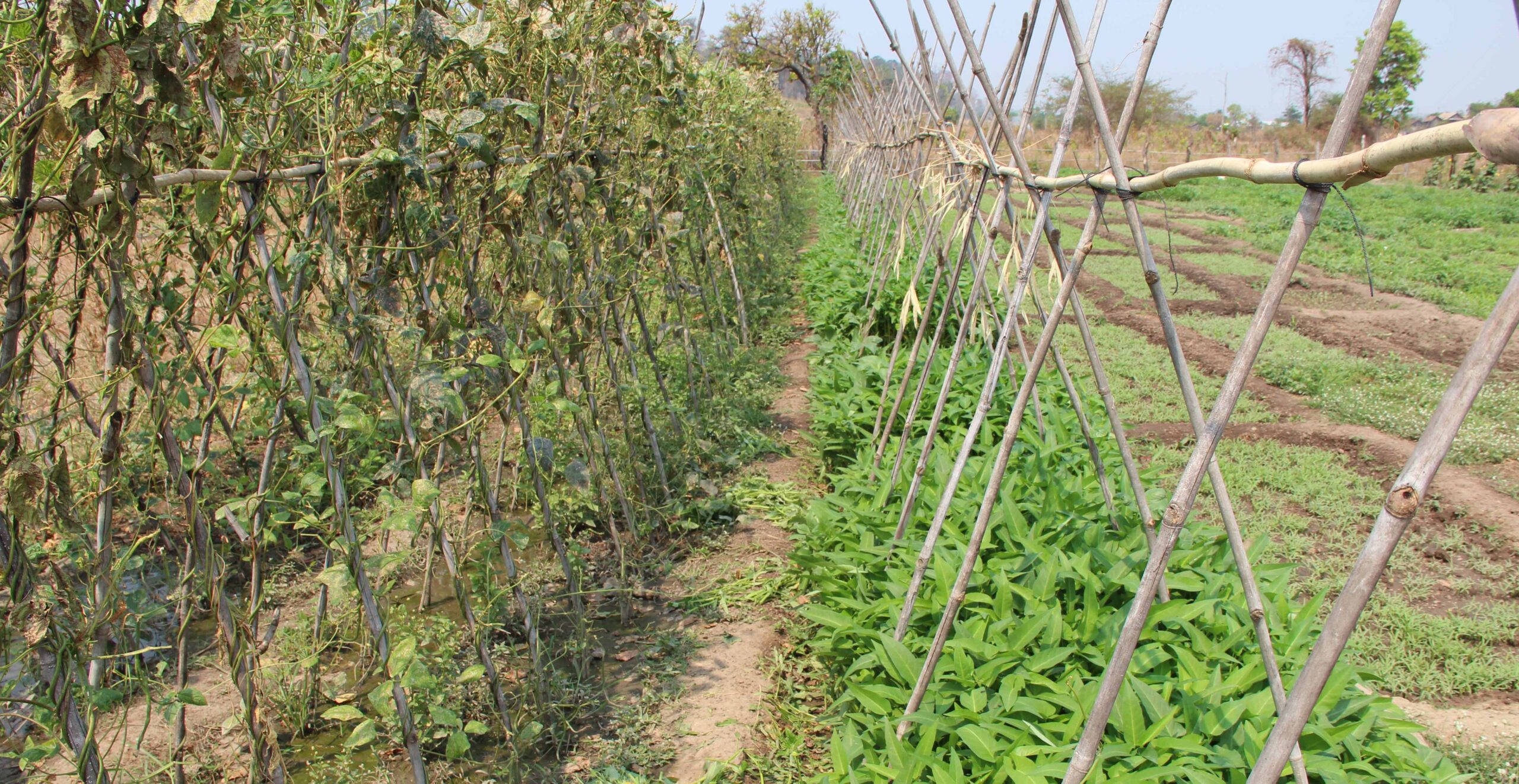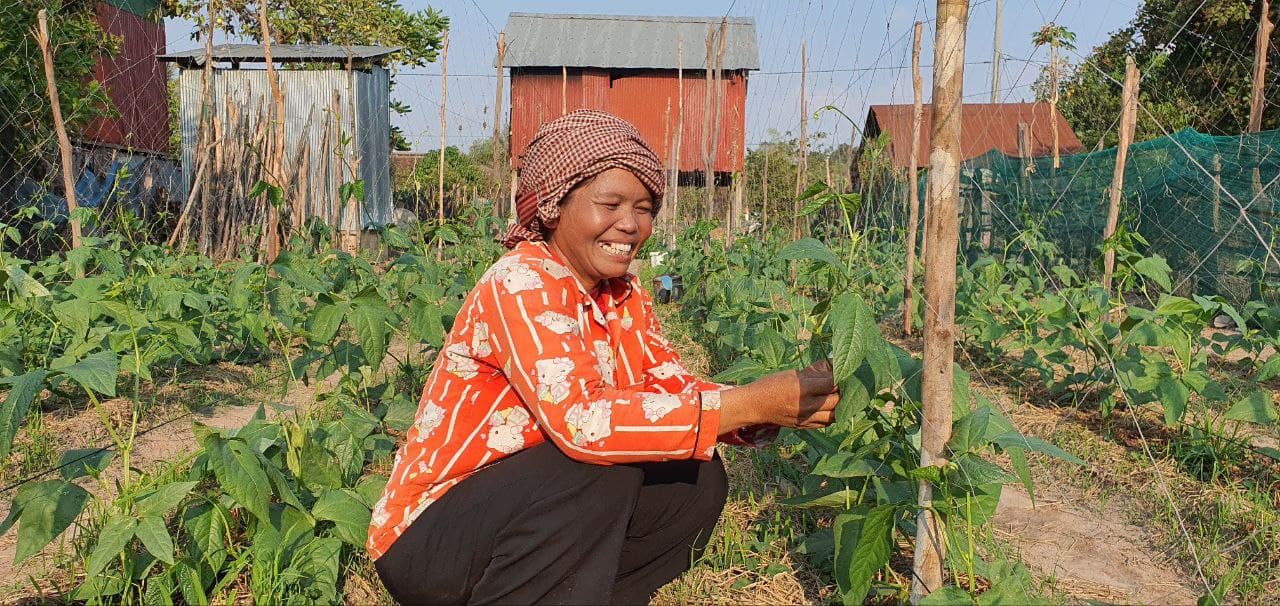My Garden, My Hope
Forty-year-old Ms. Cheng Khouen lives in Somphi village in Kampong Thom, Cambodia, with her husband and three daughters, ages 14, 12, and one. In her home garden, Khouen struggled to grow enough nutritious vegetables for her family using traditional gardening and land management methods. She would harvest one crop, and then plant the next without giving time for the soil to regenerate. She struggled to plow without damaging the soil, and her planting beds were not raised.
Eating my vegetables, I saw my children grow well both physically and mentally.
Ms. Cheng Khoeun
This resulted in a sparse, undergrown garden that was often infected with diseases, leading her to use a lot of pesticides. “I used cow dung directly on my vegetables as fertilizer, but it caused diseases on my vegetables, so then I used chemical fertilizer and pesticide,” explained Khouen. “Sometimes I sprayed the pesticide without protecting myself properly. I got headache, and dizziness. I had to get some rest to recover.”
These practices not only negatively affected Khouen, but also her family. Her family members didn’t like to eat the vegetables she grew because they were concerned about their health, especially since Khouen would get stomach aches after eating them.
In July 2021, Khouen began participation in the USAID-funded Integrated Early Childhood Development Activity, where she learned improved production techniques, including how to grow a diverse variety of vegetables. Most importantly, she learned how to make wet and dry compost for fertilizer, how to make natural pesticides, and how to best prepare her land for improved soil health and farming. “It was easy for me to understand and learn how to make wet and dry compost and natural pesticide because the trainers demonstrated these things to us, and the other participants and I had a chance to practice together,” explained Khouen.

Because of this training, Khoeun also learned how to minimize damage when harvesting, how to classify produce by quality to determine price, and how to record her income and expenses to determine her profits, helping to make her garden both productive and profitable.
With support from my husband, I make wet and dry compost, which helps my vegetables grow very well.
Ms. Cheng Khoeun
“With support from my husband, I make wet and dry compost, which helps my vegetables grow very well.” Making compost and pesticide out of naturally available materials is not only climate-friendly, but cost effective, too. Khouen’s customers appreciate her efforts and say her vegetables are delicious. Smiling, Khouen said, “Besides my family members who like eating the vegetables I grow, my neighbors also like buying them because they know I use natural compost and pesticide to make them safe and nutritious. Eating my vegetables, I saw my children grow well both physically and mentally.”

The demand for her produce makes it easy for Khouen to sell out of her vegetables. In the last 4-month crop cycle, she earned 1,600,000 Riel (400 USD) for a profit of 1,300,000 Riel (325 USD). This is a significant improvement from before participating in the IECD Activity, when her profits were just 350,000 Riel (87.50 USD) every 5-6 months. Now, Khouen has money to pay for daily household expenses and her children’s education. Khouen also has time to take care and play with her child.
“With the knowledge I have learned from the IECD project, I am able to make more profit to support my family.” Khouen also thanked the donor and project staff who provided her the training that has allowed her to improve her home garden, which she has committed to continuing even after the project is phased out.

Our global community of compassionate individuals is already making a difference – but there’s so much more to be done. We can change the future if we respond effectively and powerfully now.









